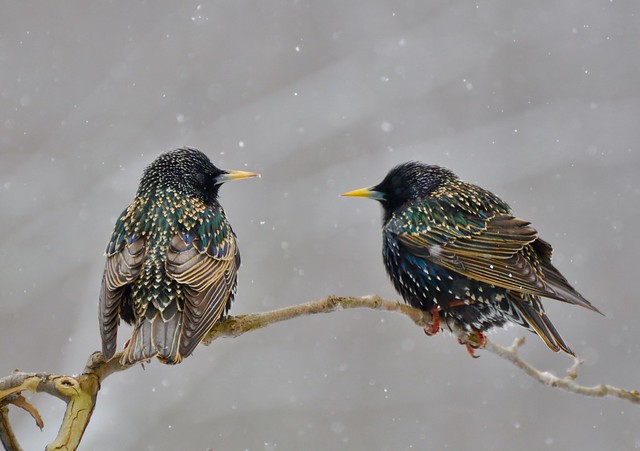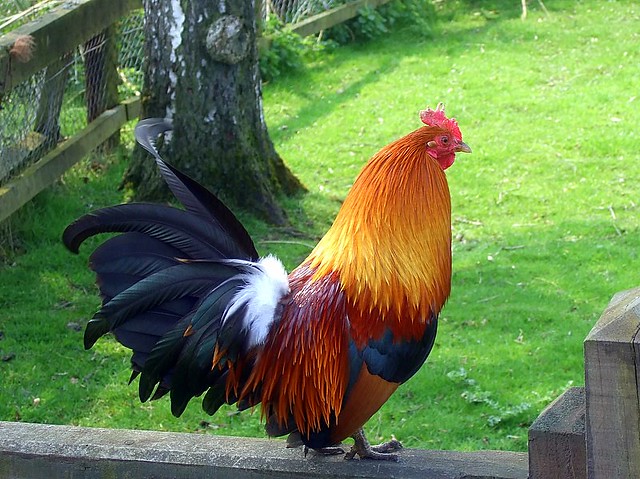Words for heron and related creatures in Celtic languages.

Words marked with a * are reconstructions.
| Proto-Celtic |
*korxsā / *korxsiyos = heron, crane |
| Celtiberian |
*cárcia = heron |
| Gaulish |
curcio- = heron |
| Old Irish (Goídelc) |
corr = crane, heron, stork, crane |
| Middle Irish (Gaoidhealg) |
corr = (grey) heron, stork, crane, leg-necked person |
| Irish (Gaeilge) |
corr [kəuɾˠ] = (grey) heron, stork, crane, leg-necked person |
| Scottish Gaelic (Gàidhlig) |
corra [kɔr̪ˠə] = heron, stork, crane |
| Manx (Gaelg) |
coar = heron, stork, crane |
| Proto-Brythonic |
*krɨxɨð = heron |
| Middle Welsh (Kymraec) |
crychyd, krechydd, crechydd = heron |
| Welsh (Cymraeg) |
crychydd [ˈkrəχɨ̞ð / ˈkrəχɪð] = heron |
| Old Cornish |
cherhit = heron |
| Middle Cornish (Cernewec) |
cerhidh = heron |
| Cornish (Kernewek) |
kerghydh = heron |
| Old Breton |
corcid = heron |
| Middle Breton (Brezonec) |
quercheiz, querch-eïz, querc’heiz, qarc’hleyz kerc’heiz = heron |
| Breton (Brezhoneg) |
kercʼheiz [kɛrˈɣɛjs] = heron |
Etymology: possibly from Proto-Indo-European *(s)kreik- / *(s)kreig- (to screech, creak), which is imitative in origin [source]. Words for heron in Galician & Spanish (garza) and Portuguese (garça), probably come from the Celtiberian root [source].
Words from the same PIE root may include reiger (heron) in Dutch, Reiher (heron) in German, häger (heron) in Swedish, heron and egret in English, and haikara (heron, stork) in Finnish [source].
| Gaulish |
crehyr = heron |
| Proto-Brythonic |
*krexVr = heron |
| Middle Welsh (Kymraec) |
crehyr, creir, cr(e)yr = heron |
| Welsh (Cymraeg) |
crëyr [ˈkrɛ.ɨ̞r / kreː.ɪr] = heron |
| Middle Breton (Brezonec) |
querhair = heron |
Etymology: possibly from the Proto-Indo-European *(s)ḱrey- (to scream, screech) [source].
| Proto-Celtic |
*garanos = crane |
| Gaulish |
garanus = crane |
| Proto-Brythonic |
*garan = crane, heron |
| Middle Welsh (Kymraec) |
caran, garan = crane, heron |
| Welsh (Cymraeg) |
garan [ˈɡaran] = crane, heron |
| Old Cornish |
garan = crane |
| Middle Cornish (Cernewec) |
garan = crane |
| Cornish (Kernewek) |
garan = crane |
| Old Breton (Brethonoc) |
garan = crane |
| Middle Breton (Brezonec) |
garan = crane |
| Breton (Brezhoneg) |
garan [ˈɡɑː.rãn] = crane (bird, tool), groove, gallery
garanadur = grooving
garanan = to groove |
Etymology: from Proto-Indo-European *gérh₂n-o-s, from *gerh₂- (crane, to cry hoarsely) [source]. Words from the same roots include crack, croon, crow and possibly grouse in English, kraai (crow) in Dutch, Krähe (crow) in German [source].

Sources: Wiktionary, Etymological Dictionary Of Proto Celtic, In Dúil Bélrai English – Old Irish glossary, eDIL – Electronic Dictionary of the Irish Language, Teanglann.ie, Am Faclair Beag, An etymological dictionary of the Gaelic language, Fockleyreen: Manx – English Dictionary, Online Manx Dictionary, Gaelg Corpus, Geiriadur Prifysgol Cymru, Lexicon cornu-britannicum : a dictionary of the ancient Celtic language of Cornwall, Gerlyver Kernewek, Devri : Le dictionaire diachronique du breton, Dictionaire Favereau, TermOfis












